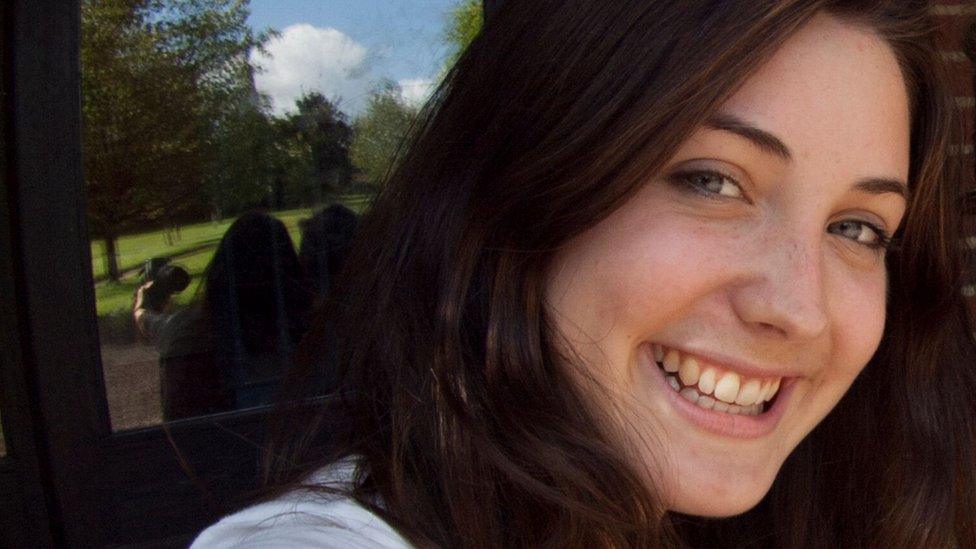Averil Hart: 'Neglect and systemic failures caused anorexia death'
- Published
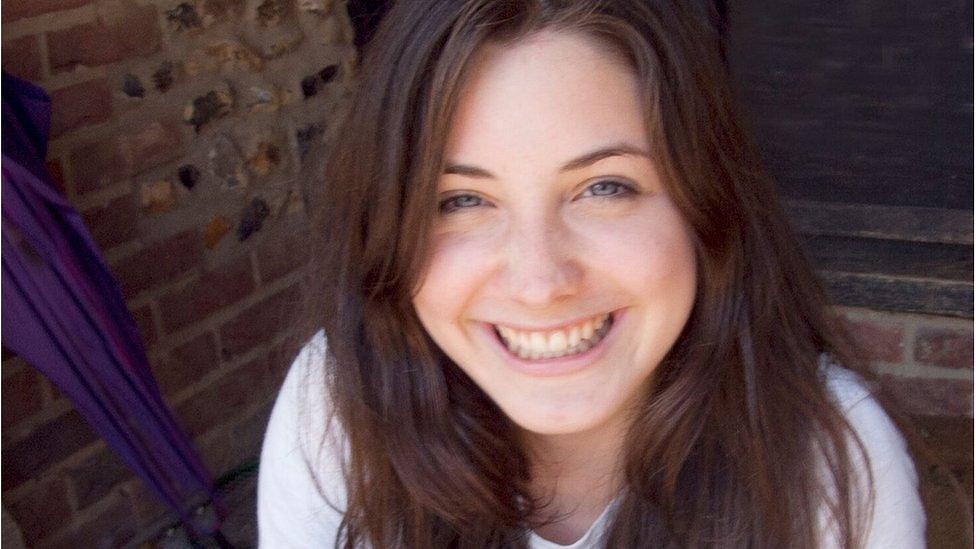
The coroner said systemic failures had been identified in Averil Hart's care
Systemic failures and neglect caused the death of a teenager who had severe anorexia, a coroner has said.
Averil Hart, 19, from Newton in Suffolk, died from anorexia on 15 December 2012, a week after collapsing at her university flat in Norwich.
The coroner identified seven areas that he said contributed to her death.
They included a "gross failure" not to give nutritional support at Norfolk and Norwich University Hospital (NNUH), which he said amounted to neglect.
A Prevention of Future Deaths report has been written by coroner Sean Horstead after he identified a theme between Miss Hart's case and four other anorexia deaths.
Amanda Bowles, Madeline Wallace, Emma Brown and Maria Jakes died between 2017 and 2018.
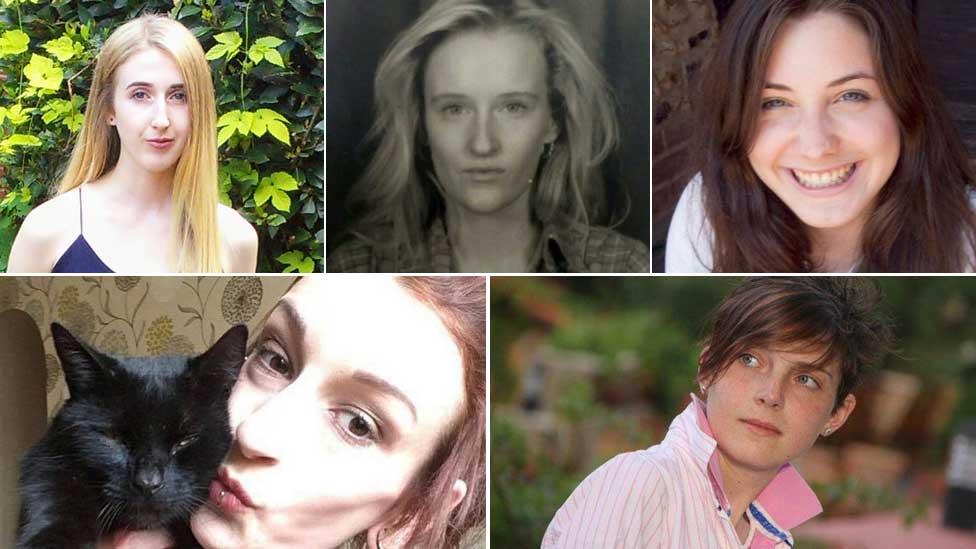
Clockwise, from top left: Maddy Wallace, Amanda Bowles, Averil Hart, Emma Brown and Maria Jakes
Mr Horstead said a gap in formally commissioned medical monitoring as seen in Miss Hart's case continued, and "gives rise to risk of future deaths".
Nic Hart, Miss Hart's father, said: "It's a huge relief to hear the coroner come to the conclusions we all knew to be the case.
"My heart bleeds for those families who have lost loved ones after Averil died."
Miss Hart had been under the care of Cambridge and Peterborough Foundation Trust but was transferred to the Norfolk Eating Disorder Service when she started a creative writing degree at the University of East Anglia in September 2012.
She died at Addenbrooke's Hospital in Cambridge, after an emergency transfer from NNUH.
On the final day of the four-week inquest in Peterborough, Mr Horstead read out a narrative conclusion.
"The failure to adequately plan for or provide any nutritional support to Averil over the course of her four days at Norfolk and Norwich University Hospital, in the context of her severely malnourished condition recognised on admission, was a gross failure that had a direct causal connection with, and more than minimally contributed to, the death," he said.
"Averil Hart's death was therefore contributed to by neglect."

Averil Hart was admitted to Norfolk and Norwich University Hospital after collapsing at her university flat
Contributing factors to Averil Hart's death
The coroner identified a total of seven areas which he said directly or possibly contributed to her death:
A lack of formally commissioned medical monitoring for Miss Hart as a patient at high risk of relapse, which caused a systemic gap in communication between primary and secondary care
A staffing crisis which meant a trainee psychiatrist at the Norfolk Eating Disorder Service with "inadequate training" was made her care coordinator
Failure of the Norfolk Eating Disorder Service to follow-up with Nic Hart after he raised concerns about his daughter's serious deterioration on 28 November
The failure to adequately plan for or provide any nutritional support over four days at NNUH
Inadequacies at NNUH which meant there was no on-call psychiatrist or dietician to help with anorexic patients as required by MARSIPAN (The Management of Really Sick Patients with Anorexia Nervosa) guidance
Failure to recognise and prevent anorexic behaviours such as moving around, which contributed to deterioration
A four-hour delay to see a doctor and eight-hour delay for blood tests following urgent transfer to Addenbrooke's
Delays at Addenbrooke's were ruled possibly causative as her condition had deteriorated significantly by the time she arrived.
NNUH medical director Prof Erika Denton said: "We acknowledge the devastating impact that Averil's death has had on her family and we offer our sincere condolences for their loss.
"We recognise that the care and treatment we gave to Averil was not of the quality that we or our patients expect, for which we are very sorry and offer an unreserved apology.
"We have endeavoured to learn and make improvements to our services, including expanding our clinical nutrition team with expert consultants, nurses and dieticians, additional specialist under-nutrition training for staff, and enhanced, 24/7 access to services that can support staff in caring for patients with particular mental health needs.
"We remain committed to improving services for our most vulnerable patients."
If you are affected by any of the issues in this story, you can talk in confidence to eating disorders charity Beat by calling its adult helpline on 0808 801 0677 or youth helpline on 0808 801 0711.

Find BBC News: East of England on Facebook, external, Instagram, external and Twitter, external. If you have a story suggestion email eastofenglandnews@bbc.co.uk
- Published14 October 2020

- Published23 January 2020

- Published24 February 2020

- Published18 September 2020
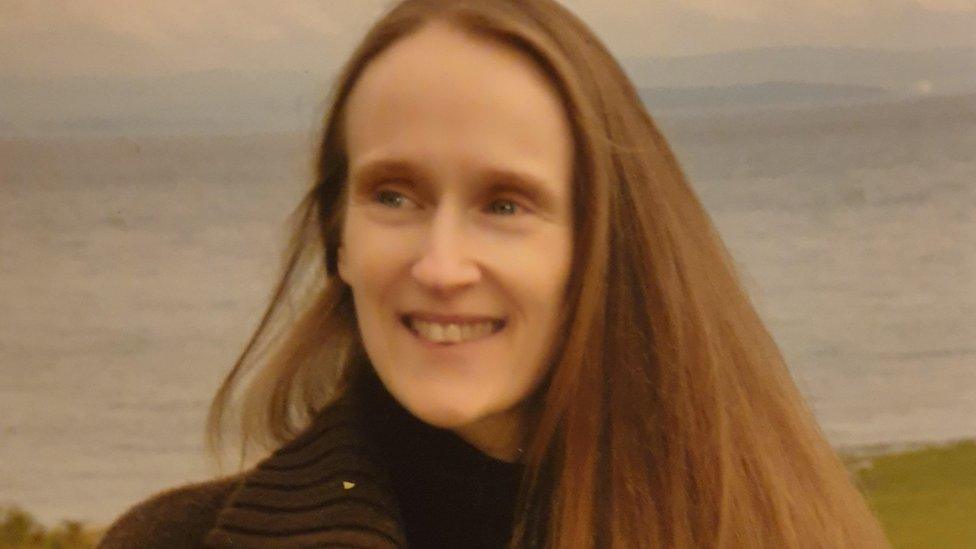
- Published18 December 2019
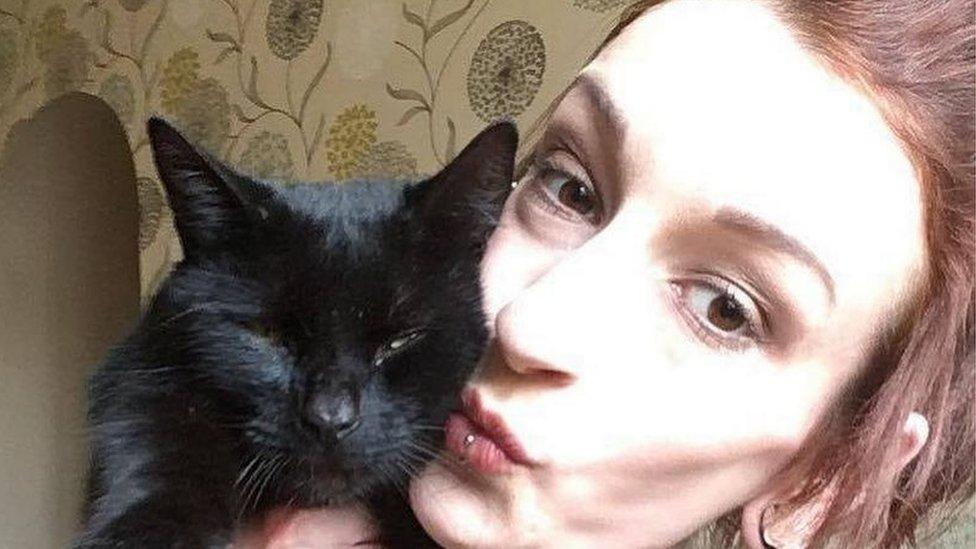
- Published29 September 2020

- Published12 July 2018
